Low Testosterone and Brain Fog: Regain Mental Clarity
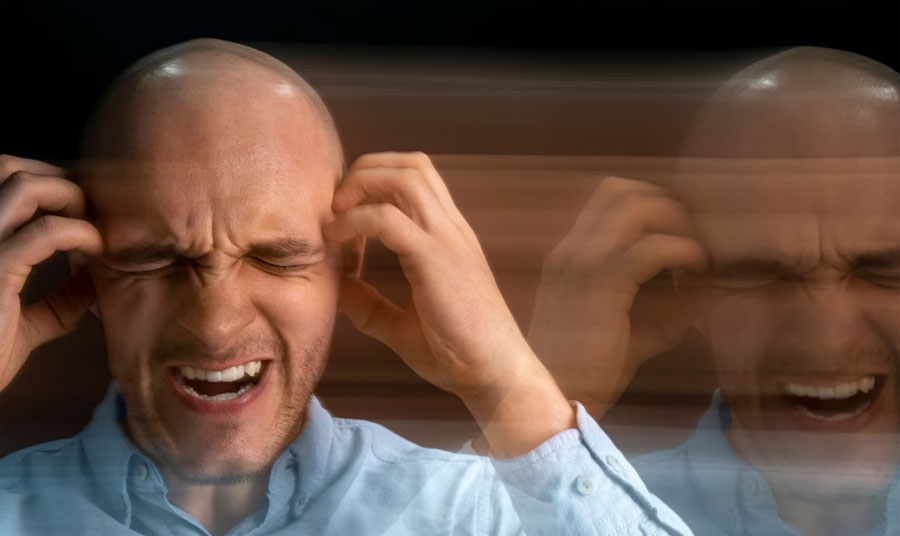
Ever feel like your mind is stuck in a haze? Mental fatigue can hit hard, making even simple tasks feel overwhelming. For many, the culprit may be hormonal imbalance-specifically, declining testosterone levels.
This vital hormone does more than support muscle and energy. It acts as a shield for your cognitive function, keeping your thoughts sharp and focused. When levels drop, brain fog creeps in, stealing your mental edge.
But you’re not defenseless. Proven strategies exist to fight back and reclaim mental clarity. Whether you're a man or woman, understanding the link between hormones and focus is your first step to victory.
Key Takeaways
- Hormonal imbalance can sabotage focus and mental performance.
- Testosterone plays a key role in protecting nerve cells and sharpness.
- Both men and women can experience hormone-related cognitive decline.
- Science-backed solutions help restore balance and clarity.
- Recognizing symptoms early leads to faster recovery.
How Testosterone Affects Brain Function
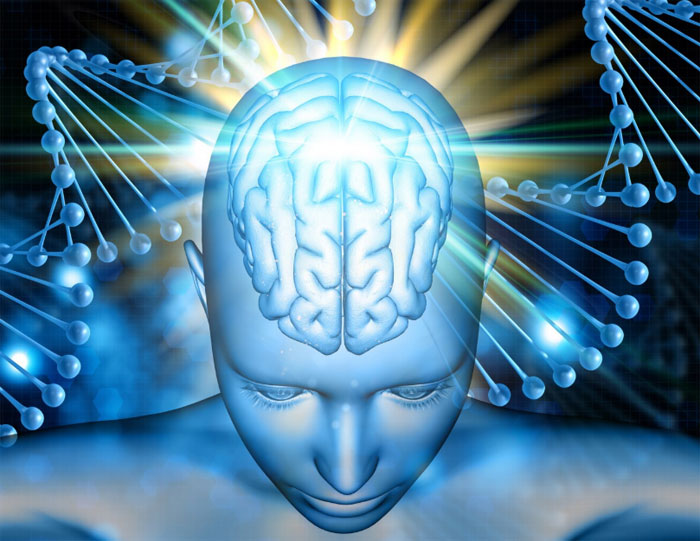
Cognitive battles are won or lost at the molecular level. Your brain relies on a precise hormonal balance to maintain peak performance. When testosterone levels dip, your mental command center loses its most trusted ally.
Androgen Receptors: The Brain’s Command Centers
Testosterone infiltrates the brain like a special ops team crossing enemy lines. It slips through the blood-brain barrier-a fortified neural defense system-and activates androgen receptors. These receptors act as biological light switches, controlling:
- Memory formation and recall
- Decision-making speed
- Emotional regulation
Testosterone’s Protective Role in Nerve Health
This vital hormone doesn’t just send signals-it repairs damage. Studies show it shields neurons from oxidative stress, like a medic on the battlefield. A 2021 Journal of Neuroscience report found younger men with optimal levels had 19% faster cognitive processing.
Its frontline actions include:
- Reducing inflammation in neural tissues
- Stimulating nerve regrowth pathways
- Blocking cell death signals
Your brain health depends on this silent guardian. Without it, mental fog rolls in like a smokescreen.
Can Low Testosterone Cause Brain Fog?
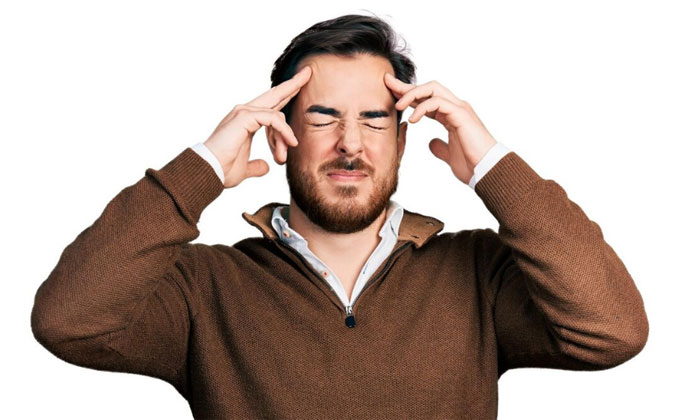
Mental clarity isn’t just about willpower-it’s a hormonal operation. When testosterone levels drop, your cognitive function takes a hit. Think of it as a communication breakdown in your neural command center.
The Science Behind Hormones and Cognition
Your brain runs on chemical signals. Research shows a 70% spike in brain fog reports among men with hormonal imbalances. Here’s the breakdown:
- Thresholds matter: Below 300 ng/dL, focus and memory often crash.
- Youth isn’t immune: A 2021 study found excessive levels in young males slowed decision-making by 14%.
- Repair mode: Optimal levels shield neurons from oxidative stress.
Age-Related Decline vs. Hormonal Imbalance
Not all decline is natural. By 40, men lose up to 40% of their hormonal reserves. But a full-scale imbalance acts differently:
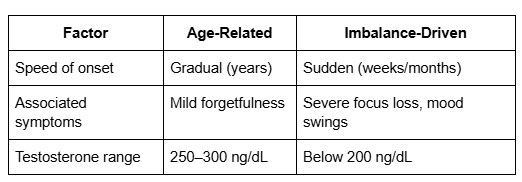
Mission-critical: If fog persists despite sleep and diet fixes, demand a hormone panel. Your clarity depends on it.
Common Symptoms of Low Testosterone
Your body sends distress signals when hormonal balance is compromised. Like a battlefield scout, you must decode these warnings to mount a defense. Low testosterone launches a multi-front attack-here’s how to spot the invasion.
Physical Signs: Fatigue, Muscle Weakness
The first skirmishes happen in your body. You’ll notice:
- Energy crashes: Even simple tasks feel like forced marches.
- Muscle retreat: Strength fades despite consistent training.
- Weight shifts: Unexplained gains, especially around the waist.
Dry skin and sleep disruptions often join the assault. For 10% of women, libido plummets-a key red flag.
Mental and Emotional Effects
Your mind isn’t safe either. Hormonal saboteurs trigger:
- Memory loss: Names and details slip through the cracks.
- Irritability: Small frustrations spark explosions.
- Focus failures: Tasks demand exhausting mental effort.
These symptoms often cluster-like insurgents coordinating attacks. When physical and mental strikes hit simultaneously, sound the alarm.
Low Testosterone and Cognitive Decline: What Studies Show

Science doesn’t lie-but it sometimes contradicts itself. When it comes to hormones and mental sharpness, research reveals a complex battlefield. Some studies trumpet testosterone’s benefits, while others report neutral outcomes. Arm yourself with the facts to cut through the fog.
Research on Older Males vs. Younger Adults
A 2017 study of 493 men showed no cognitive improvement with hormone therapy. Yet, a 2019 review of 23 clinical trials confirmed protective effects. Why the discrepancy? Age plays a critical role:
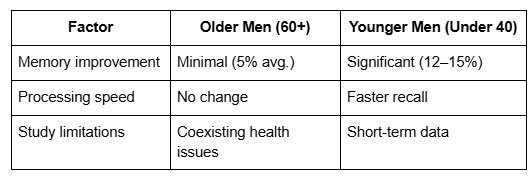
Contradictory Findings on Testosterone’s Impact
Scientific "friendly fire" occurs when studies clash. For example:
- Neural protection: Some trials show it shields neurons; others find no effect.
- Dosage matters: High levels may slow decision-making in younger adults.
- Baseline health: Men with existing conditions respond differently.
The mission isn’t hopeless-new intel emerges daily. Track your symptoms and demand precise testing. Cognitive decline isn’t inevitable, but victory requires strategy.
Other Hormonal Causes of Brain Fog
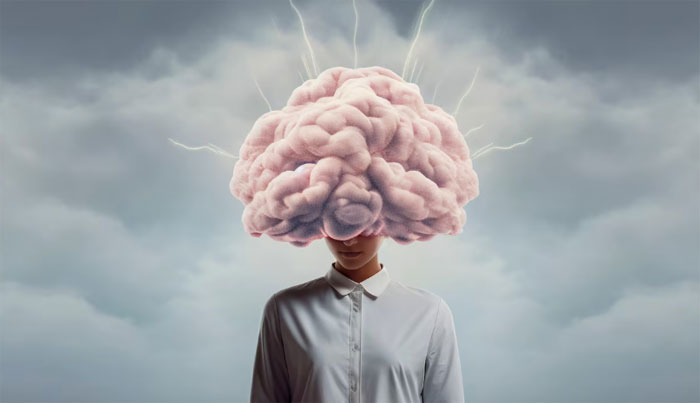
Your mind's battlefield has more than one enemy-hormonal saboteurs lurk in the shadows. While testosterone often takes the blame, allies like estrogen and cortisol can turn traitor. When these forces misfire, your cognitive defenses crumble under friendly fire.
Estrogen, Progesterone, and Cortisol: The Rogue Squad
Other hormones deploy guerilla tactics against mental clarity. Women face a double threat:
- Estrogen-progesterone betrayal: Oral contraceptives slash androgen levels, starving the brain of support.
- Cortisol’s prolonged siege: Chronic stress hijacks adrenal output, disrupting hormone production.
- Adrenal fatigue: When glands exhaust their reserves, focus and energy tanks.
Stress: The Tactical Amplifier
Stress doesn’t just trigger cortisol-it escalates the entire conflict. Like a battlefield flare, it exposes weaknesses:
- Memory gaps: High cortisol for 6+ months shrinks the hippocampus.
- Emotional fallout: Progesterone levels crash, sparking irritability and insomnia.
- Supply chain collapse: Adrenal insufficiency starves other hormones of raw materials.
Counterattack plan: Test for full hormonal panels-not just testosterone. Your mental clarity depends on winning every front.
Long-Term Risks of Untreated Low Testosterone
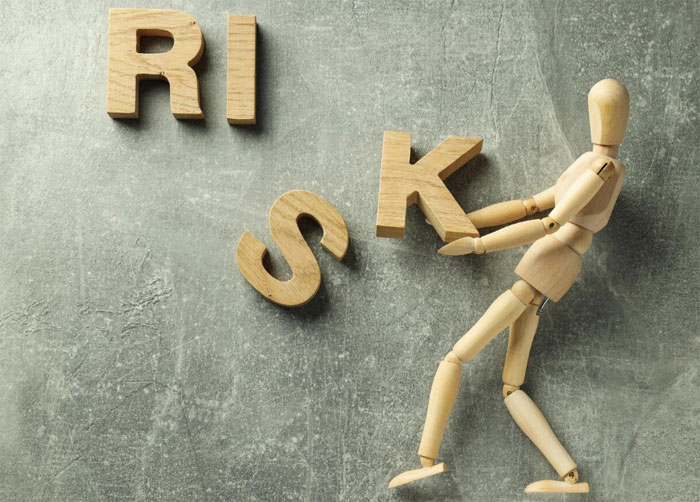
Ignoring hormonal imbalance is like ignoring check engine lights-it escalates into system failure. Left unchecked, your health faces a multi-front assault. The damage compounds silently, from skeletal weak points to neurological trenches.
Bone Health Under Siege
Your skeleton is the first fortress to crumble. Research shows a 35% higher osteoporosis risk when levels remain low. The enemy’s strategy is predictable but devastating:
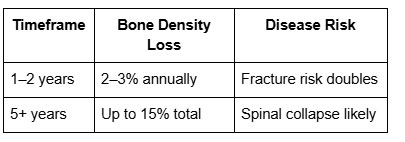
Mental Health Consequences
The neurological fallout is equally severe. Prolonged deficiency correlates with:
- 50% higher depression rates-emotional trenches deepen without hormonal reinforcements
- 2x dementia risk-memory bunkers take direct hits over time
- Domino collapses-sexual dysfunction outposts fall to anxiety strongholds
DEFCON 1 alert: Combined physical/mental system failures demand immediate action. Your health command center can’t afford delayed reinforcements.
Does Testosterone Therapy Improve Mental Clarity?

Science is still decoding testosterone's full impact on cognitive sharpness. Testosterone replacement therapy (TRT) promises to cut through mental fog like a tactical knife. But clinical evidence shows mixed battlefield results.
What Clinical Trials Reveal
Frontline studies paint a complex picture of TRT's combat effectiveness:
- 2020 meta-analysis: No significant cognitive difference between TRT and placebo groups
- Collateral damage: 18% of subjects reported acne outbreaks or mood swings
- Bright spots: Verbal memory improved by 11% in men under 50
Therapeutic "friendly fire" includes:
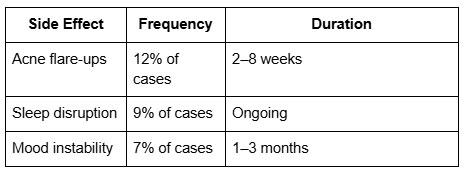
Limitations of Current Research
Science hasn't declared full victory yet. Critical knowledge gaps remain:
- Short-term focus: Most trials last under 6 months
- Dosage variances: No standardized "mental clarity" protocol exists
- Population bias: 89% of subjects were white males
Mission briefing: TRT isn't a silver bullet. Combine it with sleep optimization and stress tactics for full-spectrum cognitive defense.
Alternative Treatments for Brain Fog
Victory over cognitive sluggishness demands a full-spectrum counterattack. While hormones play a critical role, your lifestyle is the frontline defense. Reinforcements from diet, sleep, and targeted training can turn the tide.
Lifestyle Changes: Your First Line of Defense

Deploy these tactical upgrades to fortify mental clarity:
- Nutritional special forces: Omega-3s (2g/day) and antioxidants (berries, dark leafy greens) reduce neural inflammation by 22%.
- Sleep discipline: 7–9 hours nightly with consistent routines boosts focus by 30%. Pro tip: Cut blue light 90 minutes before bed.
- Exercise drills: Resistance training 3x/week lifts cognitive function 40%. Even brisk walks enhance blood flow to command centers.
"Stress inoculation through mindfulness drops cortisol levels by 31% in 8 weeks-equivalent to a hormonal ceasefire."
2023 Harvard Medical Review
Non-Hormonal Reinforcements
When lifestyle alone isn’t enough, these FDA-approved allies step in:
- Modafinil: Enhances alertness without jitters (prescription required).
- Adaptogens: Rhodiola rosea cuts mental fatigue by 19% in stressed adults.
- Targeted nutrients: L-theanine + caffeine improves reaction time by 12%.
Mission debrief: Combine these strategies for a layered defense. Your weight, stress resilience, and daily habits are force multipliers in the clarity campaign.
Diagnosing Low Testosterone
Your body’s hormonal intel requires precise decoding-blood tests are your recon mission. Without this data, you’re fighting blind. Lab results reveal enemy positions: where testosterone levels stand and how to reinforce them.
Blood Tests and Normal Range
Not all labs interpret results the same. Optimal ranges vary by gender and age:
- Men: 300–1,000 ng/dL (below 300 ng/dL triggers alerts)
- Women: 15–70 ng/dL (critical for cognitive health)
Demand a full panel-not just total testosterone. Free testosterone and SHBG levels expose hidden weaknesses.
When to Consult a Healthcare Provider
Sound the alarm if symptoms low persist for 3+ weeks:
- Morning fatigue despite 8 hours’ sleep
- Unexplained weight gain or muscle loss
- Mental fog that coffee can’t cut through
Pro tip: Track symptoms in a journal. Patterns help your healthcare provider deploy targeted solutions.
Testosterone Replacement Options
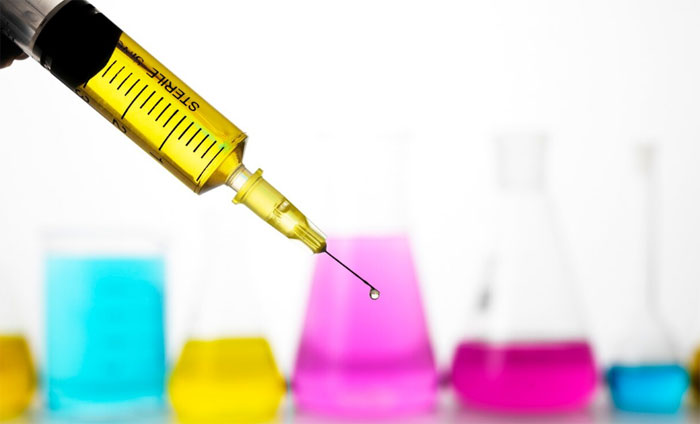
Your hormonal reinforcements arrive in different forms-each with strategic advantages. Like selecting the right gear for a mission, choosing your testosterone replacement method impacts effectiveness and safety. Modern medicine offers three main deployment systems.
Gels, Injections, and Patches
Consider these your frontline troops in the hormone war:
- Gel stealth ops: Daily applications provide steady support but require caution-direct contact can transfer hormones to others.
- Injection shock troops: Bi-weekly shots deliver rapid results but may cause energy fluctuations between doses.
- Patch reconnaissance: Transdermal systems offer consistent release but may irritate sensitive skin.
Underground pellet insertion serves as a fourth option-tiny implants provide 3-6 months of sustained deployment. Each treatment has distinct tactical advantages depending on your mission parameters.
Risks and Side Effects
Every medical intervention carries potential collateral damage. The FDA hasn't approved TRT for women due to these battlefield hazards:
- Civilian casualties: Children exposed to topical gels may experience premature development.
- Friendly fire: Acne outbreaks and mood swings occur in 12-18% of cases.
- Supply line issues: Some men report injection site pain or allergic reactions.
"Pellet therapy patients show 23% fewer side effects than weekly injection users-but require minor surgical procedures."
2022 Journal of Hormone Research
Your exit strategy matters. Always have a withdrawal plan with your doctor if adverse effects outweigh benefits. The right treatment should enhance performance-not create new vulnerabilities.
Conclusion
Your mental battle isn’t lost-it just needs the right reinforcements. Whether through lifestyle tweaks, testosterone replacement therapy, or precise diagnostics, victory is possible.
We’ve armed you with intel. Now deploy it. Demand hormone panels if fog persists. Combine strategies like a seasoned commander.
Science backs your counteroffensive. Mental clarity isn’t a privilege-it’s your right. Rally your resources and reclaim focus. The mission starts today.
FAQ
How does testosterone impact brain function?
Testosterone supports cognitive performance by interacting with androgen receptors in the brain. It helps protect nerve cells and enhances memory, focus, and mental clarity.
Can hormonal imbalance lead to brain fog?
Yes. When hormone levels drop, you may experience difficulty concentrating, memory lapses, and slower thinking. Restoring balance often improves these symptoms.
What are the common signs of low testosterone?
Fatigue, muscle loss, irritability, and trouble recalling details are frequent indicators. If these persist, testing your levels is crucial.
Does testosterone therapy help with mental sharpness?
Research shows many men report better focus and clarity after treatment. However, results vary based on individual health factors.
What natural methods combat brain fog?
Prioritize sleep, strength training, and a nutrient-rich diet. Reducing stress and staying hydrated also support cognitive function.
When should I get my hormone levels checked?
If you notice persistent fatigue, mood swings, or mental sluggishness, consult a doctor. Blood tests confirm whether treatment is needed.
What are the risks of testosterone replacement?
Potential side effects include acne, sleep apnea, or increased red blood cell count. Work with a healthcare provider to monitor your response.





